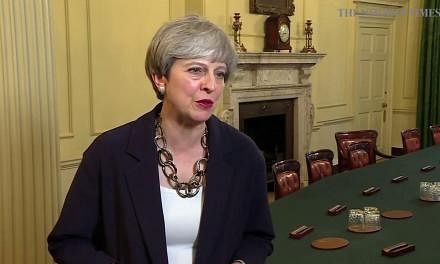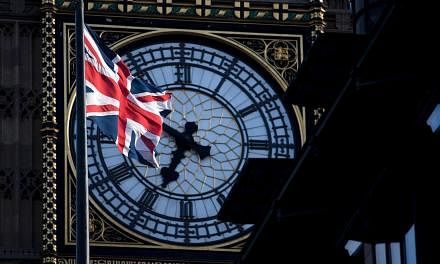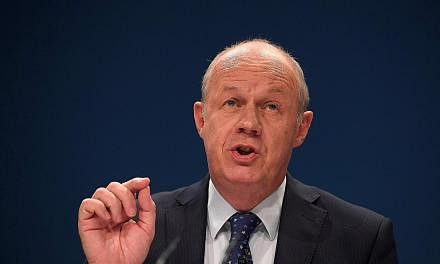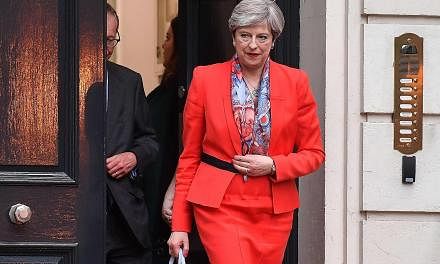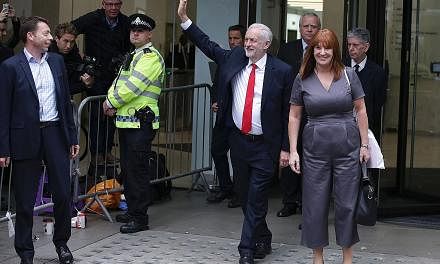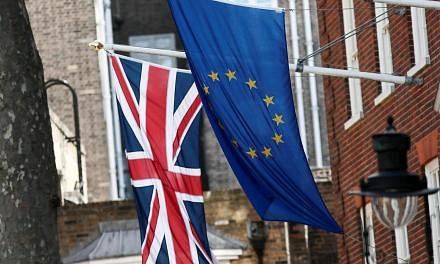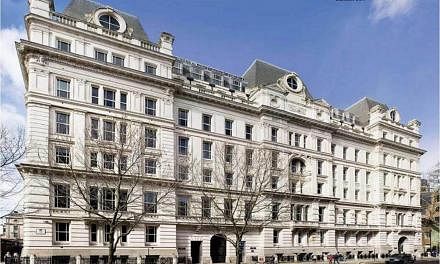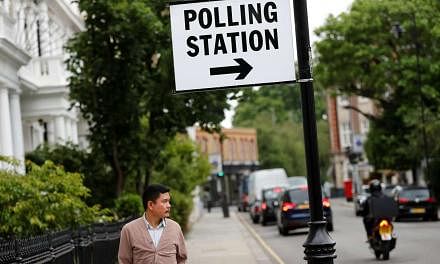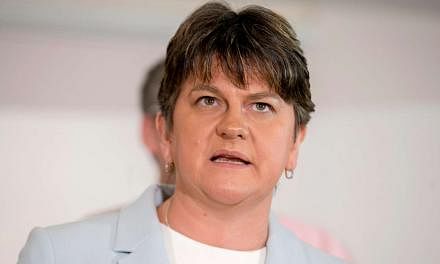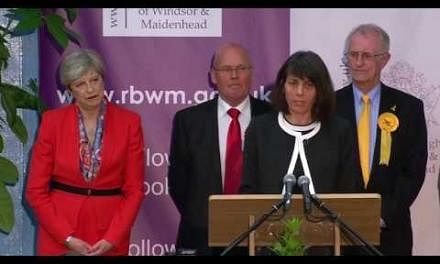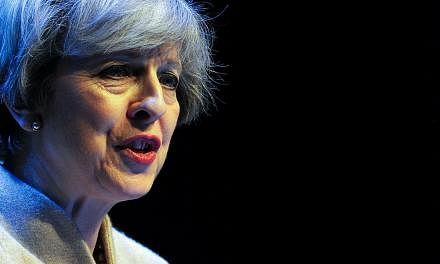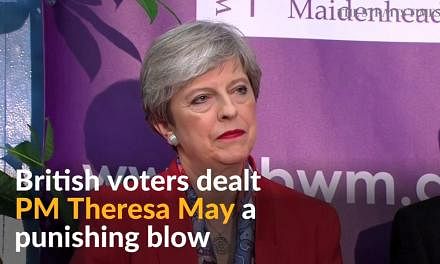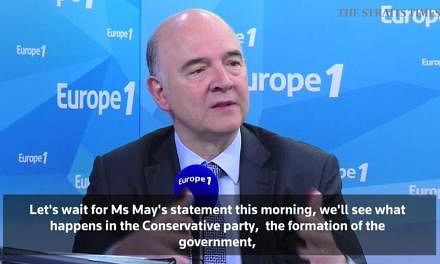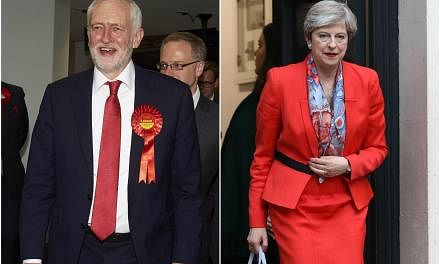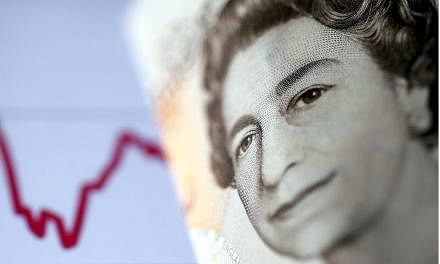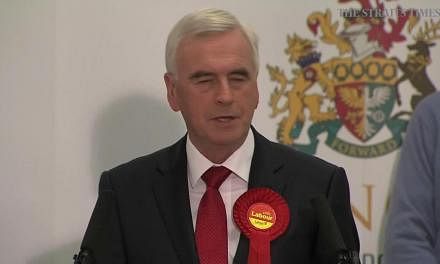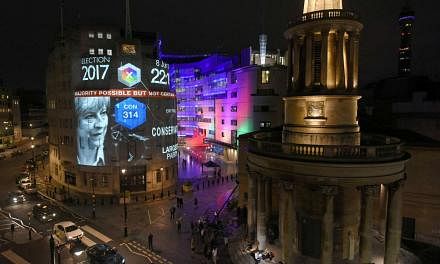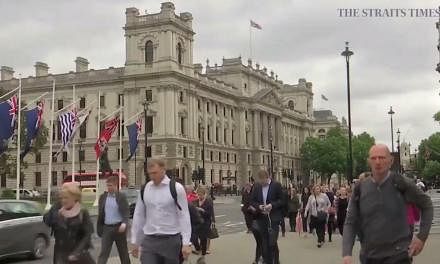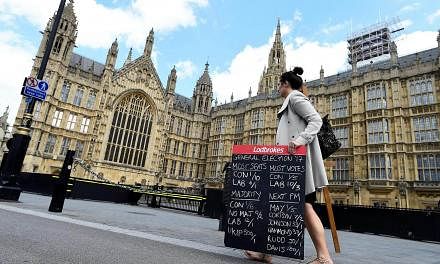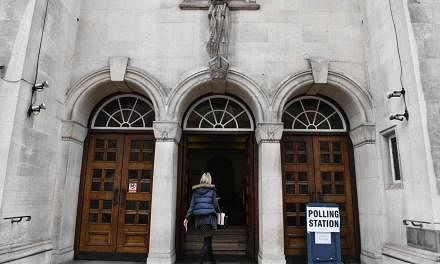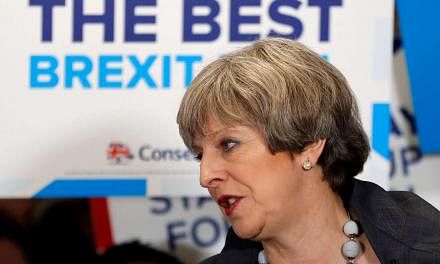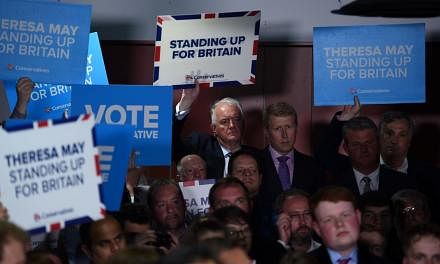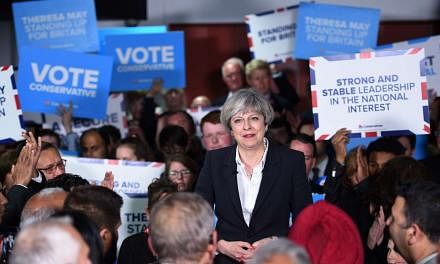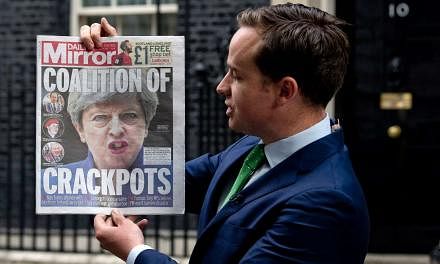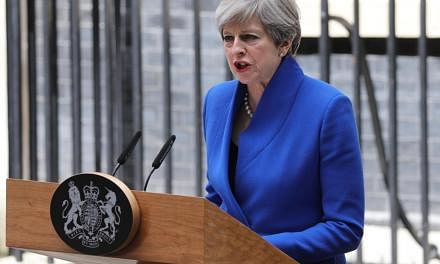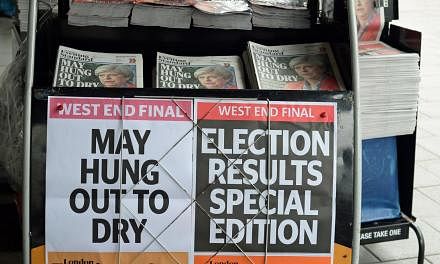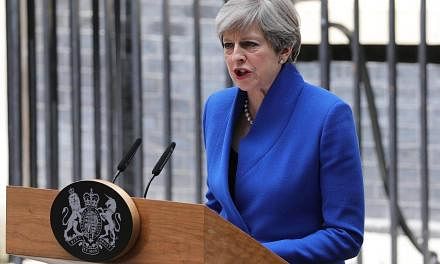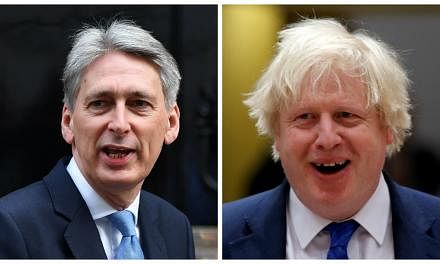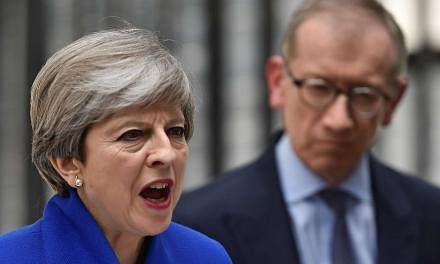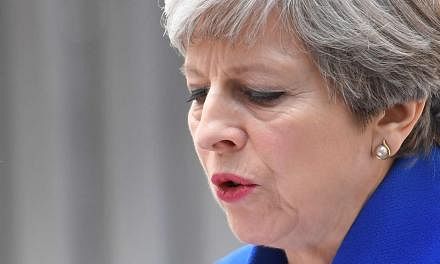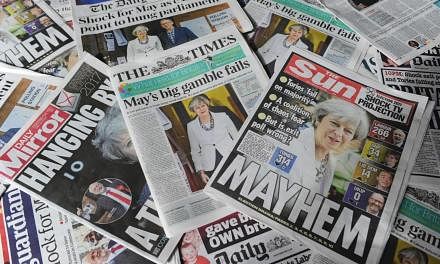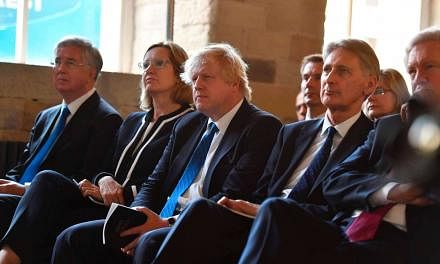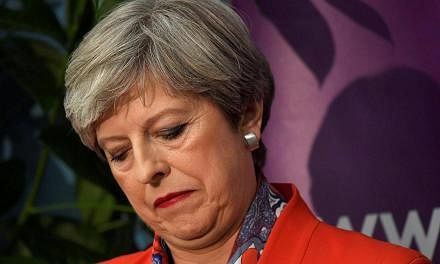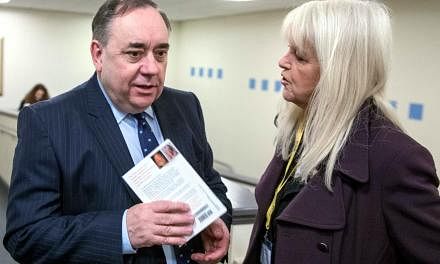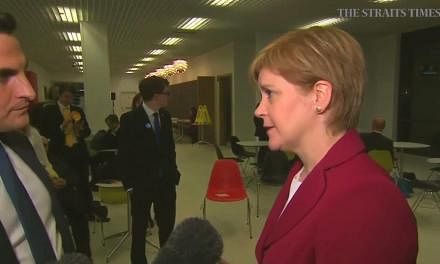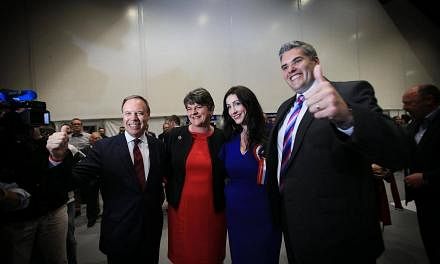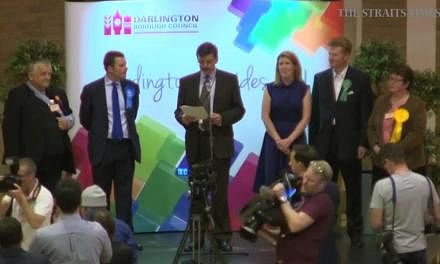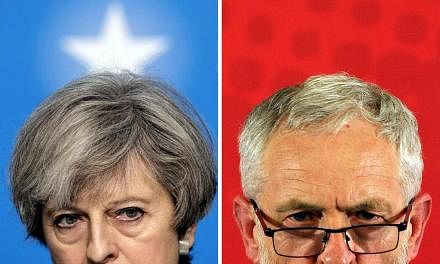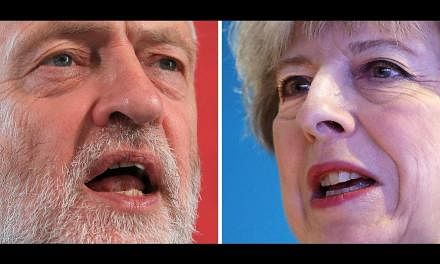LONDON (REUTERS) - The pound suffered its biggest fall in eight months, sliding more than 2 cents against the US dollar after an exit poll unexpectedly showed Prime Minister Theresa May falling short of an overall parliamentary majority in Britain's election.
By 2200 GMT (6am Friday Singapore time), sterling was 1.7 percent lower on the day at US$1.2739, having fallen as low as US$1.2705.
The pound also fell 1.6 percent to 87.90 pence per euro.
"A hung parliament is the worst outcome from a markets perspective as it creates another layer of uncertainty ahead of the Brexit negotiations," said Craig Erlam, a market analyst with brokerage Oanda in London.
"Sterling looks very vulnerable to further downside. It could be another very bad night for the pound."
Analysts predicted more losses for the British currency if official results, which are set to be released gradually over the next few hours, confirm the exit poll's prediction that May's Conservative Party would win just 314 of 650 seats.
"The market will be praying that this exit poll has got it wrong," said Lee Hardman, a currency analyst with Japanese financial giant MUFG in London. "Currency volatility is the best proxy for market fears. If the Conservative ship is sinking then the market will be looking for a life boat."
Before Thursday's slide, the pound had fallen 2.5 percent in trade-weighted terms in less than four weeks as opinion polls showed the opposition Labour Party gaining ground on the Conservatives, raising the prospect of no party winning an overall majority.
But financial investors' traditional views of whether the Conservatives or Labour would be good or bad for the pound have been muddied in this election. Some banks have said a high-spending Labour government could spur economic growth and cause the Bank of England to raise interest rates more quickly.

